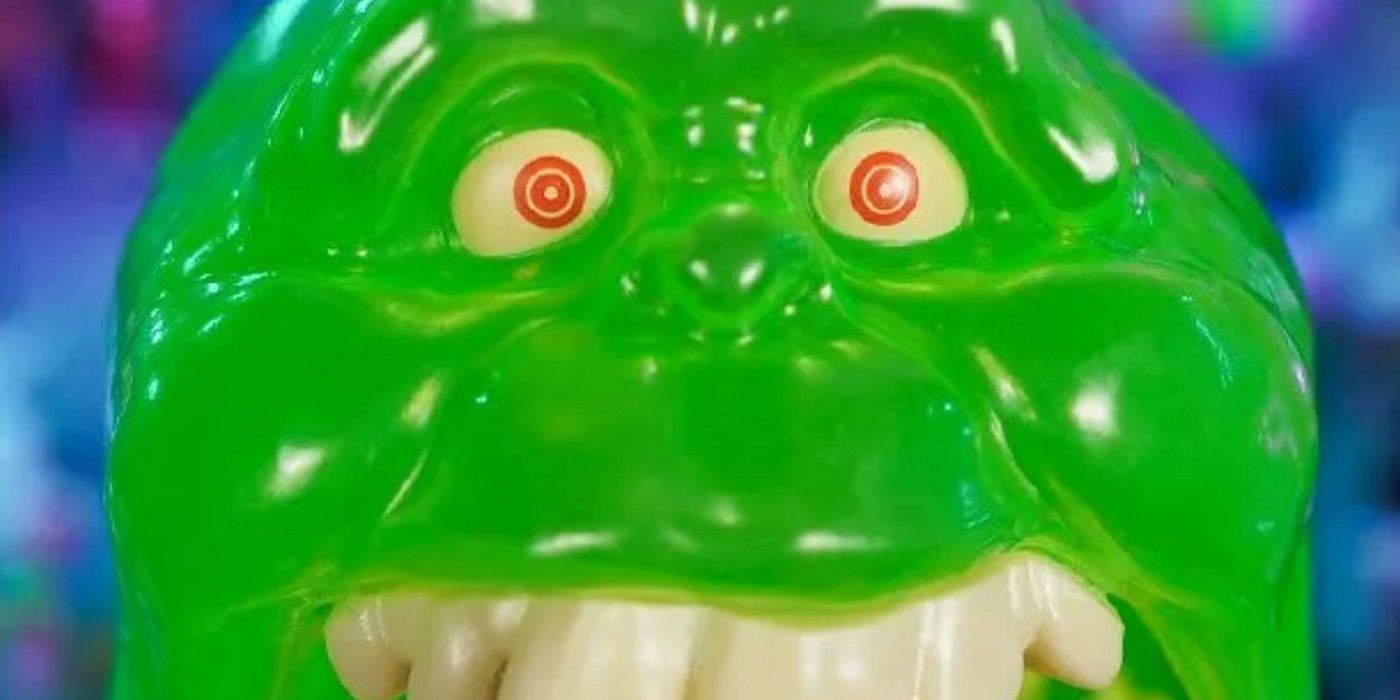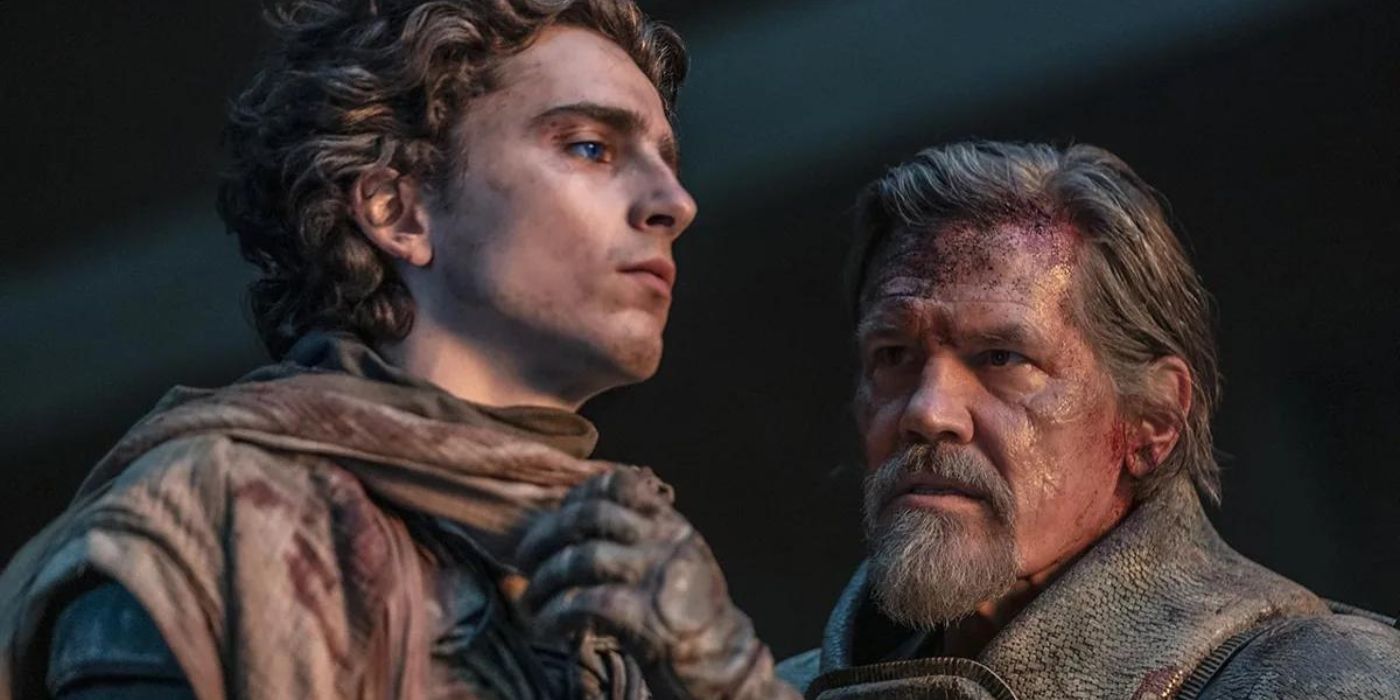Spoilers Ahead for Dune: Part Two and Dune Messiah
Summary
-
Dune: Part Two
sets the stage for a darker, more deconstructive, and weirder sequel,
Dune Messiah
. - Protagonist Paul Atreides faces the consequences of his actions, leading to a galaxy-wide jihad and a loss of humanity.
- Changes in
Part Two
, like Chani’s role and Alia’s absence, hint at an even more ambitious and polarizing
Dune Messiah
.
It’s clear that the highly anticipated Dune: Part Two is a massive success, raking in a higher opening weekend than anticipated and giving the worldwide box office its biggest weekend since Barbieheimer. At this point, it’s no longer a question of if Denis Villeneuve’s planned trilogy closer, an adaptation of Dune: Messiah, will happen—it’s when.
Legendary Pictures CEO Josh Grole has hinted that there might be a longer delay than there was between the first and second installments but that whenever director Denis Villeneuve has a script that he’s confident in, the studio will support his vision for Dune 3. Adapting Dune, an infamously difficult novel to crack, was challenging enough as it was, but its immediate sequel is an even riskier prospect, stranger and darker than its predecessor. As such, we’re taking a closer look at the direction that Frank Herbert’s Dune: Messiah goes in and how Part Two sets the stage for what’s to come.
Dune Messiah Is Darker, More Deconstructive, and Far Weirder
Dune: Part Two
- Release Date
- March 1, 2024
- Runtime
- 166 Minutes
- Main Genre
- Sci-Fi
The closing moments of Dune: Part Two signify a clear tone that an inevitable sequel would take. The novel Dune: Messiah, which picks up twelve years after the end of its predecessor, shows protagonist Paul Atreides in a less flattering light than ever, having launched a galaxy-wide jihad against anyone who won’t accept his rule, with the Fremen doing his bidding. The shockingly bleak ending for Dune: Part Two sets the stage for this perfectly, as Paul’s victorious claim of the throne is juxtaposed with his almost total loss of humanity.
The plot of Dune: Messiah revolves around Paul’s attempts to hold onto his power, as the reign of terror he’s unleashed has left him with numerous enemies. Secretly, the Bene Gesserit (having lost control of their intended Kwisatz Haderach) conspires with other organizations within the Spacing Guild to remove the new Emperor from power and regain power over the Arrakis spice fields. The proceedings see the introduction of new groups, including Emperor Shaddam’s previously unseen children and the Bene Tleilaxu, who control genetic engineering throughout the galaxy.

Ghostbusters’ Slimer and Ghost Trap Popcorn Buckets Avoid Dune 2’s Sandworm Controversy
Ghostbusters: Frozen Empire’s debut brings with it some new collectable popcorn buckets for fans.
While Dune: Part Two paints Paul’s holy war as horrific, the true cost of his decision doesn’t become fully clear until Dune: Messiah. He’s now known throughout the galaxy as a mass murderer, with over sixty billion killed as part of his jihad. Herbert uses the novel to emphasize that Paul is no Luke Skywalker – he’s Michael Corleone, fully aware of how much he’s damned his soul and desperate to retain his humanity. And much like Michael Corleone, Paul ends the book unable to redeem himself, having lost nearly everyone and everything he loved.
Of course, Dune: Messiah isn’t only known for how much more depressing it gets – it’s equally remembered for taking the franchise into infinitely stranger territory. The weirdest of these involves the shocking return of Jason Momoa’s Duncan Idaho, who died in Part One saving Paul from a Sardaukar attack. The Bene Tleilaxu brings Duncan back as a specially-bred clone, naming him “Hayt,” intending to give him as a gift to Paul so he can gain his trust and assassinate him.
What Do the Changes From Dune 2 Mean for Dune 3?
Dune: Part Two famously changed a great deal from Frank Herbert’s original novel, mainly by expanding the story to give an admittedly rushed chunk of the story more room to breathe. However, a few significant plot alterations also left the direction for Villeneuve somewhat uncertain.
The most important of these involves Chani’s role in the story. In the first two novels in the series, Chani is mostly a bystander character, primarily used as a prop to further Paul’s character development. She willingly stays as his concubine even after he arranges his marriage to Princess Irulan. This proves hugely important when Messiah begins, as Chani’s pregnancy with Paul’s children is a critical plot point. The twins she births, Leto II and Ghanima, become the series protagonists in the following installment, Children of Dune, and much of Paul’s conflict in Messiah involves visions he has of Chani dying in childbirth.
In contrast, Chani in Dune: Part Two is a much more proactive character, arguably providing a more crucial perspective to the story than even Paul. Through her eyes, the ultimate tragedy is emphasized; as a noted skeptic of the Fremen’s religious beliefs, she’s highly resistant to the very idea of a messiah, wisely noting that looking for a savior is a form of imprisonment. Crucially, she leaves Paul in the film’s final moments after he proposes to Irulan. While Paul notes to his mother in an earlier scene, after he’s become the Kwisatz Haderach, that he’s foreseen that Chani will eventually “understand,” Villeneuve has a difficult road bringing her back into her lover’s orbit if he even wants to bring her back at all.
The other notable absence and change in Dune: Part Two, and the easier one to address, is Paul’s sister Alia Atreides. Infused with the powers of a Reverend Mother in the womb, Alia is born in the first novel, rapidly aging and having powers almost equal to her mother’s, and she’s even the one to kill Baron Harkonnen instead of Paul. Villeneuve chose to leave the character unborn (albeit with a cameo appearance in a vision) for his film due to his decision to compress the story’s timeline, but this likely won’t impact the story itself. Since her omniscience makes her an outcast among the Fremen, her powers seem relatively easy to explain quickly if Messiah is indeed her full introduction.

Dune 2’s Denis Villeneuve Grants Final Wish of a Dying Fan
Dune 2 director Denis Villeneuve brought comfort to a dying fan by letting him see the sequel before it hit the theater.
Dune Messiah Is an Even More Ambitious Undertaking
Denis Villeneuve pulled off the impossible with his first two Dune films, adapting a book that most said was impossible to crack. But his work ahead for Dune: Messiah might be even more daunting; while the final reel of Part Two hints at darker things to come, the next film effectively requires total command of an unflinchingly bleak story, which, for a movie of this scale, will inevitably alienate many.
Coupled with the story’s much more bizarre plot developments, it’s safe to assume that Messiah will be a much more polarizing film than its predecessors. But of course, no one would’ve expected both Dune films to be among the biggest tentpoles of the last five years, so if anyone can pull it off, it’s Villeneuve. Dune: Part Two is playing in theaters now.




